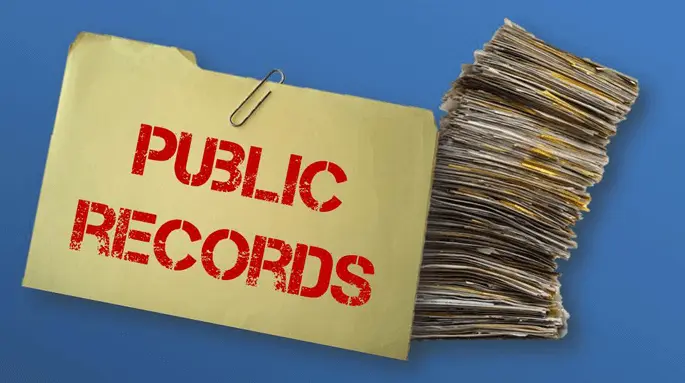Your Guide to Finding and Accessing Public Records

Welcome to this comprehensive guide on finding and accessing public records. These records are treasure troves of information and can provide you with valuable insight. In this guide, we will cover everything from the types of public records available to the methods you can use to find and access them, and even some helpful tips for your search.
Table of Contents
What Are Public Records?
They can include records from government agencies, courts, and other organizations. Some common types of public records include birth certificates, marriage licenses, property deeds, court documents, and more. These records can serve as valuable resources for research, legal matters, or personal interests.
Types of Public Records
There are many types of public records available to the public, depending on the jurisdiction and the type of information you are seeking. Here are a few examples of public records you might encounter:
- Vital Records: These are records of life events, such as birth, marriage, and death certificates.
- Property Records: This category includes information on property ownership, mortgages, and property taxes.
- Criminal Records: These documents detail an individual’s criminal history, such as arrest records, convictions, and incarceration information.
- Court Records: Court records include documents from legal proceedings, such as lawsuits, divorces, and bankruptcy filings.
- Business Records: Business-related public records include information on corporations, partnerships, and other business entities.
Locating Public Records
Public records are often stored in various locations, depending on the type of record and the jurisdiction. Some common places to find public records include:
- Local, state, or federal government offices
- County courthouses
- Public libraries
- Online databases and websites
Before you find public records, it’s essential to know what type of record you are looking for and where it may be stored. This will help you focus your efforts and save time in your search.
Accessing Public Records Online
In recent years, there has been a significant push to make public records more accessible through online databases and websites. Many government agencies and other organizations have digitized their records and made them available online, making the search for public records more manageable than ever before. To access public records online, you can use search engines, government websites, or specialized online databases.
It’s essential to be cautious when using online resources, as some websites may charge fees for access to public records or offer inaccurate information. Always verify the credibility of the source before relying on the information provided.
Accessing Public Records in Person
In some cases, public records may not be available online or may be challenging to locate through digital means. In these instances, you may need to visit a government office, courthouse, or other location where the records are stored. Be prepared to provide identification and potentially pay a fee to access the records. Additionally, some records may have restricted access, so it’s essential to know the specific rules and regulations governing the records you are seeking.
Verifying the Accuracy of Public Records
While public records can provide valuable information, it’s essential to keep in mind that these records may contain errors or omissions. It’s always a good idea to verify the accuracy of the information you find in public records by cross-referencing it with other sources or obtaining official copies of the documents.
Handling Sensitive Information
When dealing with public records, it’s crucial to handle sensitive information responsibly. Personal data, such as Social Security numbers or financial information, should be treated with care and not disclosed to unauthorized individuals. Additionally, be aware of any legal or ethical restrictions on the use of the information you obtain from public records.
Leveraging Public Records for Your Benefit
Understanding how to find and access public records can be incredibly beneficial for various purposes. You can use public records to research your family history, conduct due diligence on a potential business partner or investment, or gather information for legal proceedings. By familiarizing yourself with the types of public records available and the methods for accessing them, you’ll be well-equipped to harness the power of these valuable resources for your personal or professional needs.
Tips for a Successful Public Records Search
To make the most of your search for public records, consider the following tips:
- Be specific: Know the exact type of record you’re seeking and have a clear idea of the information you need. This will help streamline your search and increase the chances of finding the desired record.
- Be patient: Searching for public records can sometimes be time-consuming, particularly if the records are not easily accessible online. Be prepared to invest some time and effort in your search.
- Take notes: As you search for and review public records, document your findings and keep track of the sources you’ve consulted. This will help you organize your research and make it easier to verify the information you’ve obtained.
- Know your rights: Familiarize yourself with the laws and regulations governing access to public records in your jurisdiction. This will help you understand what information is available to you and any restrictions or fees that may apply.
- Seek help when needed: If you’re struggling to find or access the public records you need, don’t hesitate to reach out for help. Government offices, libraries, and other organizations may have staff available to assist you in your search.
Conclusion: The Power of Public Records
In conclusion, public records are a valuable resource that can provide you with a wealth of information. By understanding the types of public records available, how to locate and access them, and the best practices for conducting your search, you can harness this information to your advantage. Whether you’re researching your family history, investigating a potential business venture, or gathering information for legal purposes, public records can be a powerful tool at your disposal.






